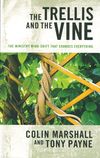The matter of ‘the Sabbath Day’ has been part of my general knowledge base since I was a child. My parents made some endeavour to ensure that the Lord’s Day had some characteristic that set it apart from the rest of the week. Key markers of course would be church attendance but even in the afternoon or evening, TV or playing football were frowned upon because they tended to make the day look and feel like any other day. It was always a little beyond me as a child understanding where they were coming from… In the years of youthful rebellion we tried to be smart by quoting Jesus’ words, The Sabbath was made for man and not man for the Sabbath, as a justification to do what we needed to do on the Sabbath and especially if we could get away with categorising it as ‘rest’!
The fallout from a lack of commitment to the distinctiveness of the Sabbath day was highlighted for me in Tanzania, where Christians were moving for an early morning service on a Sunday, around 8am so that they could get it over and get on with the rest of the day in dealing with their own business matters. Britain has long since abandoned any restraint on ‘business as usual’, even on a Sunday – a matter that at the time I didn’t see as being such a big deal. The resultant shift in the cultural perspective of our society today now makes it decidedly ‘old-fashioned’ and even ‘legalistic’ to mention the subject, I fear, but a recent house group event with some of the guys from Greenview brought home the reality that a Sabbath rest lost in the workaholic culture of today is taking its toll on individuals, families, churches and society at large.
God’s design for us has always been that we should rest. Our house group were indebted to Tim Keller for his teaching on the matter from Luke 6:1-11. This was an excellent message – an exemplary expositional sermon that taught Christ in all the Scriptures as well as making the main point of the passage abundantly clear. Our need for rest, where we find rest, and how do we do it were Keller’s main headings. Make time to listen to this sermon – it’s a message we need to re-learn in the 21st Century hubbub of activity.

